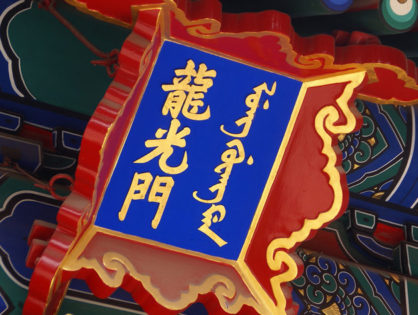International Symposium:
Manchu in Global History:
A Research Language for Qing Historians
Keynote Lecture:
Manchu Sources and the Problem of Translation
Time: September 19-22, 2017
Place: KWZ 3.601, University of Göttingen
Organisers:
Julia C. Schneider (Department for East Asian Studies, University of Göttingen)
Katja Pessl (Centre for Modern East Asian Studies, University of Göttingen)
As an ‘ethnic minority’ with origins in the semi-nomadic civilisations of northeast Asia(Manchuria), the Manchus successfully ruled Han-dominated China and extended the territory of the “Great Qing” (1636/1644-1912) far into Inner Asia, including Mongolia, Tibet, and East Turkestan (Xinjiang). Thereby, they created a wide corridor, connecting many different peoples and cultures under their rule and beyond.
The University of Göttingen (Department of East Asian Studies & Centre for Modern East Asian Studies) will be hosting the workshop Manchu in Global History: A Research Language for Qing Historians. We invite paper proposals from prospective speakers who offer specific case studies as well as broader studies on Qing and Manchu history.
Manchu Sources and the Problem of Translation
Prof. Dr. Mark Elliott (Harvard University)
September 20, 2017, 4-6 pm (c.t.)
KWZ, Room 0.602
Click here for a detailed program
Image: David Baron Folgen,Sign above gate, CC BY-SA 2.0, https://flic.kr/p/33JdAz

